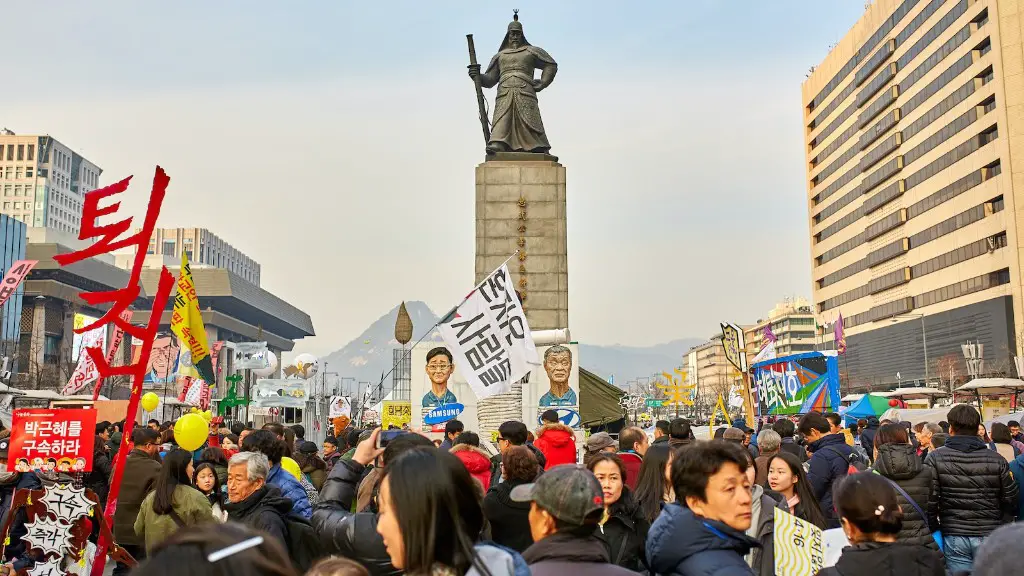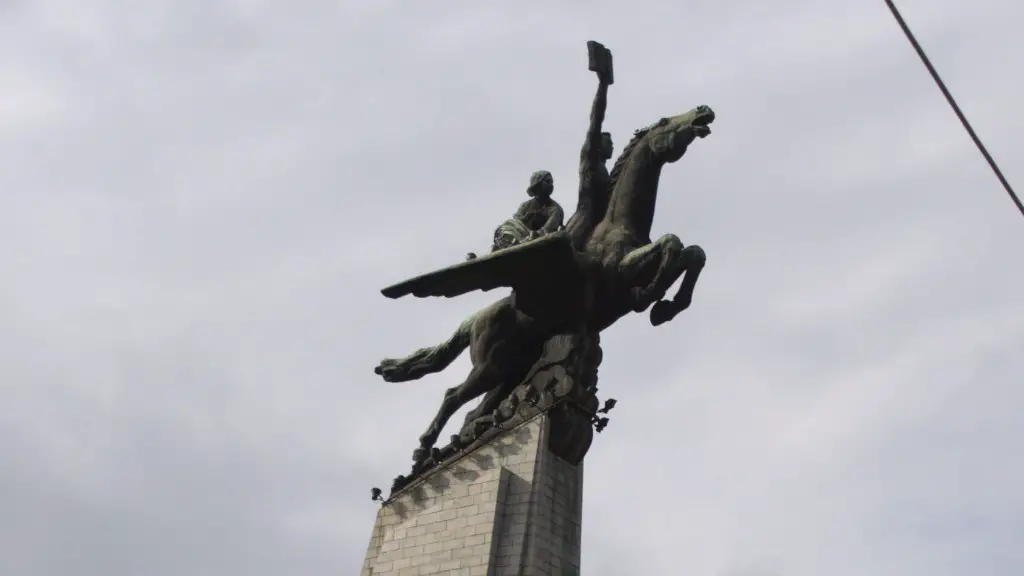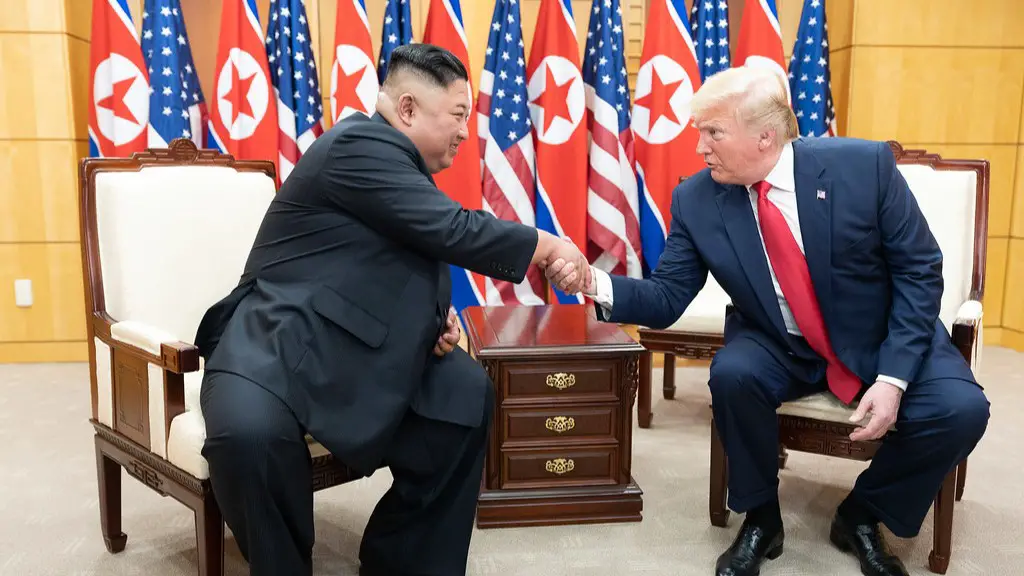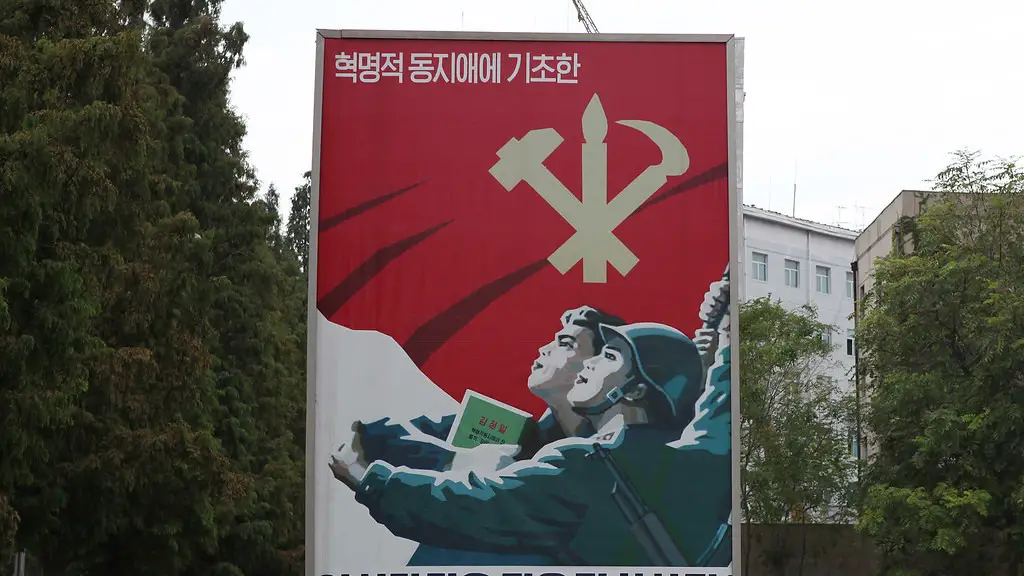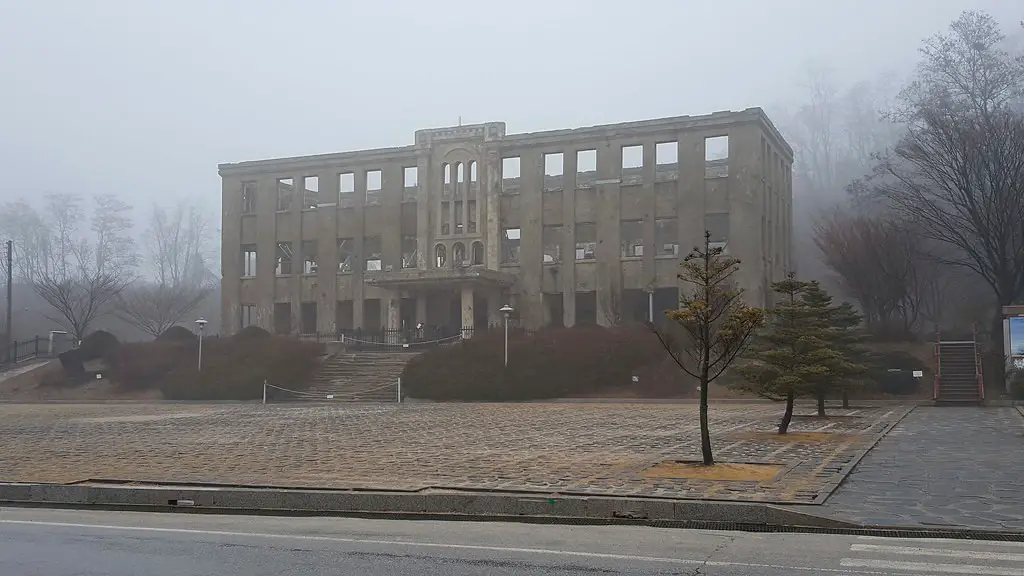North Korea has been developing and testing nuclear weapons since the mid-1980s, with improving designs and better delivery capabilities. It has alarmed the international community and provoked numerous rounds of economic sanctions which have yet to succeed in suffocating the country’s nuclear pursuits. So, why is North Korea testing nuclear weapons?
There are complex political and economic motivations driving North Korea’s determination to acquire a nuclear weapon. The North Korean government has long claimed the weapons are necessary for its own self-defense, and they have repeatedly emphasized their nuclear program as a cornerstone of national identity and pride. Furthermore, North Korea’s economy remains largely propped up by Chinese and American aid and the United Nations. This aid comes with strings attached that often entails curtailing North Korea’s ability to pursue its own interests. As such, nuclear weapons present a powerful tool to North Korea by which it can leverage its own affairs and make itself more independent from foreign powers. Since North Korea lacks a modern infrastructure, nuclear power has become a practical means to sustain their failing economy.
Experts suggest that North Korea is also taking a more aggressive approach to its weapons tests in an attempt to send a message to its regional neighbours, the United States and Japan. By achieving military achievements that no other country in its region can match, North Korea seeks to bolster its status on the world stage and gain international recognition, as well as to increase its regional influence. North Korean leader Kim Jong-Un has hailed the frequent weapons tests as “great successes” and has attributed the increasing number of tests as evidence that the regime is modernizing, strengthening and developing its military.
Though there is the possibility of North Korea’s weapons tests inspiring other countries in the region to pursue nuclear capabilities, international measurements such as embargos have been successful so far in hindering the spread of North Korea’s nuclear program. However, nuclear deterrence mechanisms remain insufficient in addressing North Korea’s pursuit of nuclear weapons due to the country’s use of obfuscation in its nuclear program and a historical lack of trust between the North and its neighbours.
The threat of North Korea’s nuclear weapons and its disregard for international laws is of grave concern to the international community. The global community must take action to independently monitor North Korea’s nuclear operations, reduce the country’s military budget and boost its economic ties, both regionally and internationally. These measures must be combined with continued negotiations and diplomatic outreach in order to provide a lasting solution that can prevent further escalation in the Korean peninsula.
The Human Cost
Behind the escalating nuclear tensions for North Korea is the suffering of its own people. The UN has reported of several human rights violations in the country, ranging from extrajudicial killings and torture, to the often-reported cases of the compulsory military service and the abduction of citizens. Under the current authoritarian rule, access to food, healthcare and education are severely limited, contributing to the ever-worsening humanitarian crisis that millions of North Korean citizens face on a daily basis.
North Korea’s focus on nuclear weapons has come at the cost of its people by diverting resources away from essential duties and into military capabilities. Ordinary North Koreans face significant shortages in food supplies, basic medical services and even access to electricity and clean water. This has caused immense suffering and despair, with the inability for citizens to access even the most basic of basic amenities.
The UN Security Council itself has expressed deep concern for these violations and has adopted several resolutions to condemn them. In the hope of bringing about positive change, the international community must do its utmost to put pressure on North Korea and allow for greater freedom for its citizens.
Sanction Impacts
Since 2006, the United Nations Security Council has imposed multiple rounds of economic sanctions on North Korea in an attempt to force it to discontinue its pursuit of nuclear weapons. The sanctions have included arms embargoes, trade and travel restrictions and have aimed to impede on North Korea’s ability to procure materials necessary for its nuclear capabilities. In addition to limiting the resources available to North Korea, the sanctions have made it harder for countries to provide aid and international assistance to the North Korean people.
United Nations Development Program (UNDP) reports have revealed the significant impact that the UN sanctions have inflicted on the North Korean economy. North Korea’s GDP has declined by as much as 5.5 percent in 2018, while food security and nutrition decreased by over a third in the same period. The reports also noted of the lack of resources in the country, especially in the agricultural and medical sectors where access to essential goods and vital materials is severely limited. These effects are only compounded by the fact that the sanctions have made it increasingly difficult for states to provide aid to North Korean citizens.
The UN sanctions have thus far failed to force North Korea to abandon its nuclear program, but it has unquestionably exacerbated the existing suffering of its people. International aid must continue to be a priority to the UN and all the countries involved in preventing nuclear escalation in the Korean peninsula.
International Responses
The international community has implemented numerous diplomatic initiatives over the years in an attempt to de-escalate the tensions between North Korea, the United States and its regional neighbours. From the Six Party Talks to the Trump-Kim summits, leaders from around the world have met and negotiated for what they hope to be a solution to the instability in the region. Despite the various efforts, no actual solution appears to be forthcoming.
Past agreements such as the Six Party Talks have overall failed to provide any tangible results. Between the inability of North Korea to adhere to the negotiated terms and continuous backlashes from the US, the advancement of diplomatic relations is proving to be a difficult endeavour. Russia and China have also had their fair share of disagreements with the US in regards to international responses, with the former adamantly against any form of debt relief and the latter hoping to end all sanctions on North Korea. Such conflict of interests have made it highly unlikely that the international community will be able to reach any kind of consensus in the near future.
Representatives of the US, South Korea, Japan and China have all noted of their intention to resume talks in the near future, but little progress has been made thus far. The US has been largely reluctant to engage in any form of dialogue and has instead opted for a policy of further sanctions and economic embargoes.
The Future of North Korea
The current state of the Korean peninsula is surely an unstable one, with North Korea’s pursuit of nuclear weapons presenting a genuine threat to regional peace and stability. The nuclear issue is one unlikely to be resolved anytime soon, especially without some form of comprehensive international agreement and guarantee of security for all involved.
Glimmers of hope have been apparent in the past, as US President Donald Trump and North Korean leader Kim Jong-Un have held three separate summits in an attempt to normalize relations and establish diplomatic ties between the countries. However, the talks quickly broke down and further military exercises have been conducted since then, seemingly showcasing the United States’ preference of a military solution to the nuclear threat.
The future of North Korea is highly uncertain at the moment, but it is undoubtedly in need of an international response that goes beyond punitive sanctions. More constructive initiatives are necessary to provide North Korea with economic aid and foreign investment, along with measures to assist the country with its own economic transition.
The Role of China
China is estimated to be the source of up to 90% of North Korea’s foreign trade. In 2017, Beijing announced that it had reduced its oil exports to North Korea in compliance with UN-mandated sanctions. According to International Crisis Group, Chinese companies appear to be operating in the shadow of UN sanctions, with much of the country’s economic activity going on under the radar.
It is unlikely that North Korea will abandon its nuclear ambitions anytime soon, especially due to its dependence on Chinese oil exports and other resources. If North Korea were to completely cut off its Chinese ties, its economy would take an even greater toll as the country would be unable to sustain itself without access to essential materials. China therefore holds the key to North Korea’s nuclear success and failure.
China’s role in North Korea is essential to any peace and security in the region, but Beijing’s rhetoric has remained strongly against any form of unified action. In its most recent statement, China has recognized that meaningful progress can only be made through sustained diplomatic dialogue, but has not yet taken any form of concrete steps in this regard.
Conclusion
North Korea is a dangerous and unpredictable player in the international arena, and its possession and continued development of nuclear weapons remain an urgent concern to the international community. International agreements and economic embargoes have been somewhat effective in containing the country’s military capabilities, but the future of the Korean peninsula still appears to be an uncertain one.
